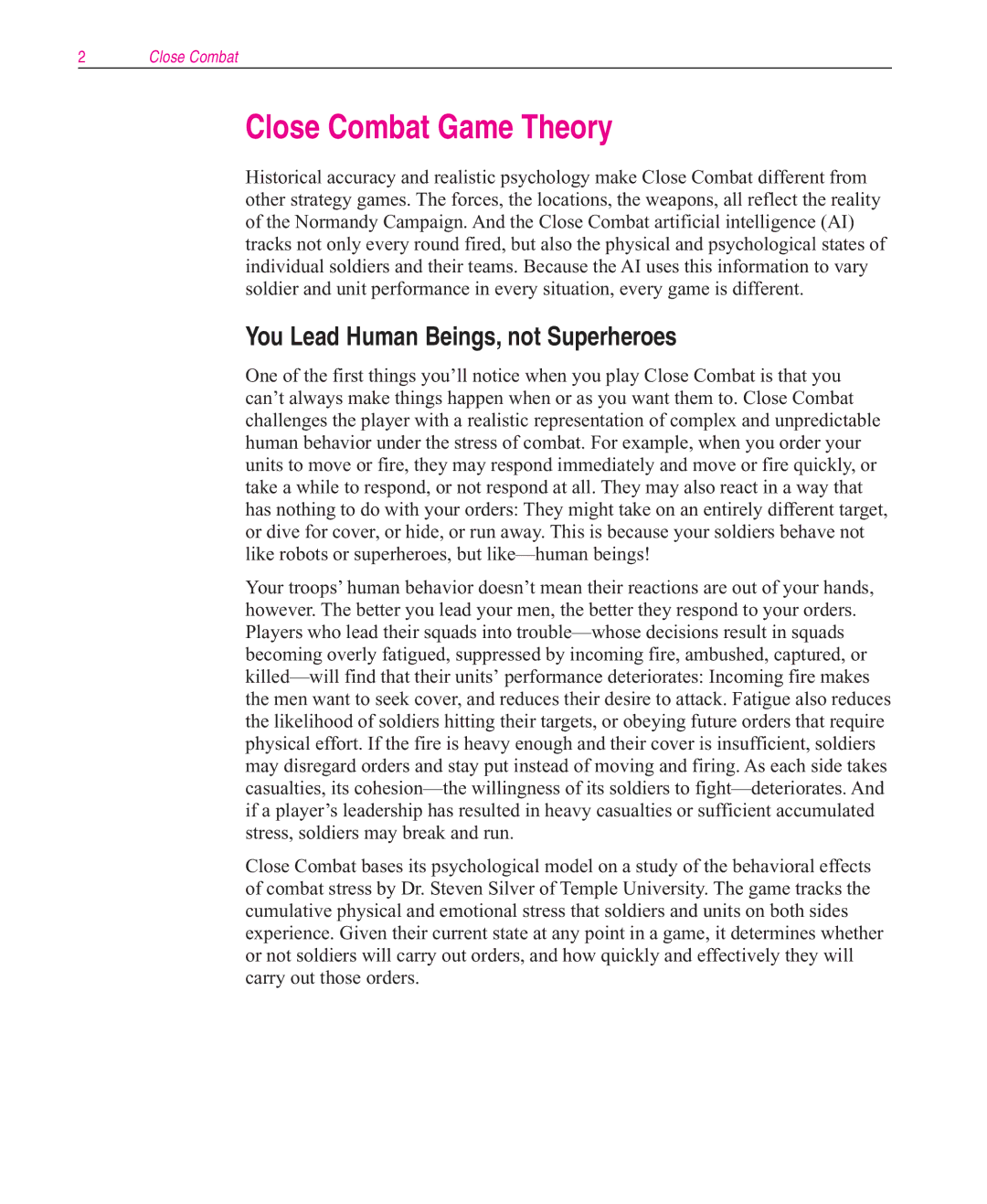2Close Combat
Close Combat Game Theory
Historical accuracy and realistic psychology make Close Combat different from other strategy games. The forces, the locations, the weapons, all reflect the reality of the Normandy Campaign. And the Close Combat artificial intelligence (AI) tracks not only every round fired, but also the physical and psychological states of individual soldiers and their teams. Because the AI uses this information to vary soldier and unit performance in every situation, every game is different.
You Lead Human Beings, not Superheroes
One of the first things you’ll notice when you play Close Combat is that you can’t always make things happen when or as you want them to. Close Combat challenges the player with a realistic representation of complex and unpredictable human behavior under the stress of combat. For example, when you order your units to move or fire, they may respond immediately and move or fire quickly, or take a while to respond, or not respond at all. They may also react in a way that has nothing to do with your orders: They might take on an entirely different target, or dive for cover, or hide, or run away. This is because your soldiers behave not like robots or superheroes, but
Your troops’ human behavior doesn’t mean their reactions are out of your hands, however. The better you lead your men, the better they respond to your orders. Players who lead their squads into
Close Combat bases its psychological model on a study of the behavioral effects of combat stress by Dr. Steven Silver of Temple University. The game tracks the cumulative physical and emotional stress that soldiers and units on both sides experience. Given their current state at any point in a game, it determines whether or not soldiers will carry out orders, and how quickly and effectively they will carry out those orders.
